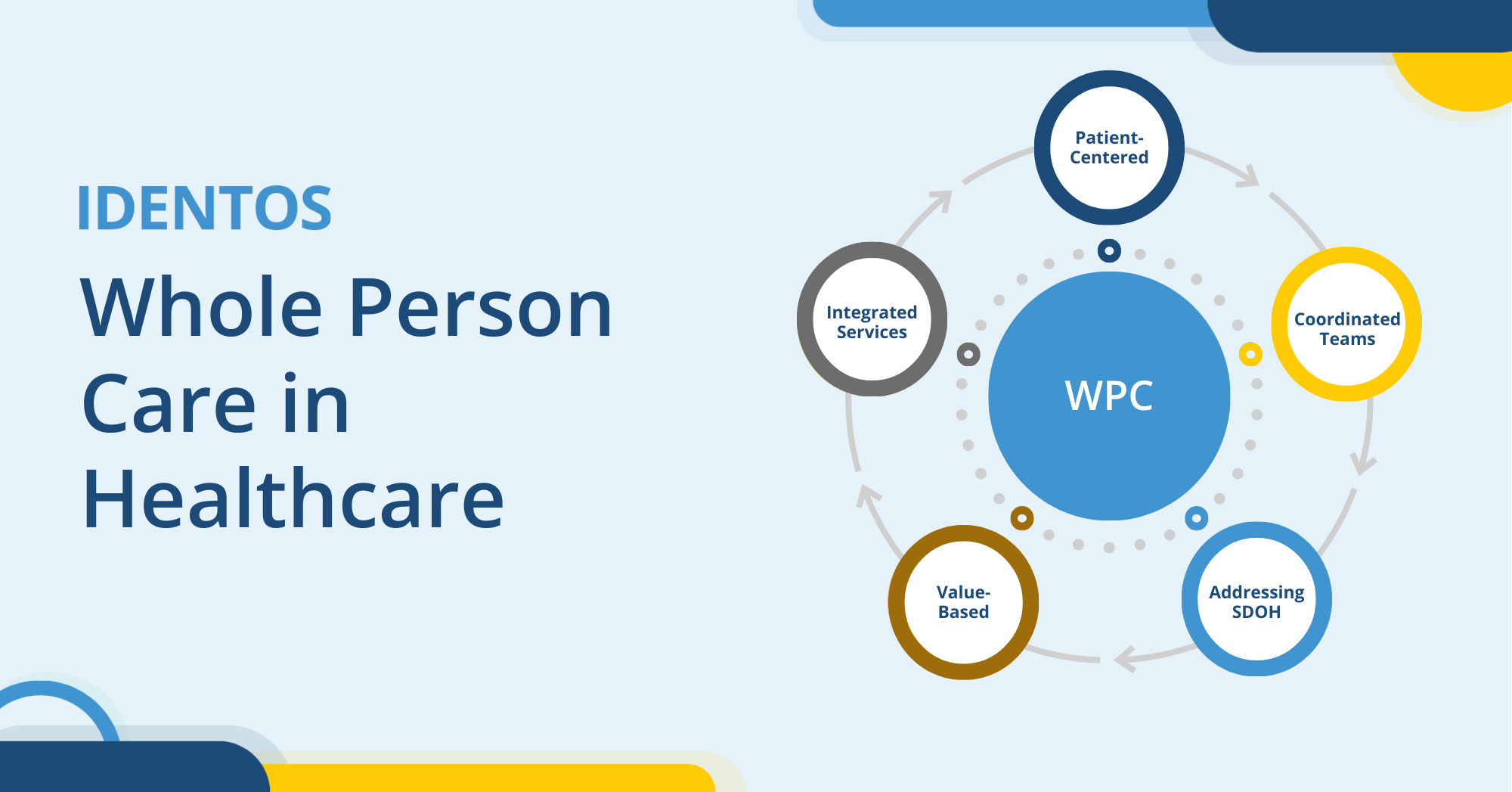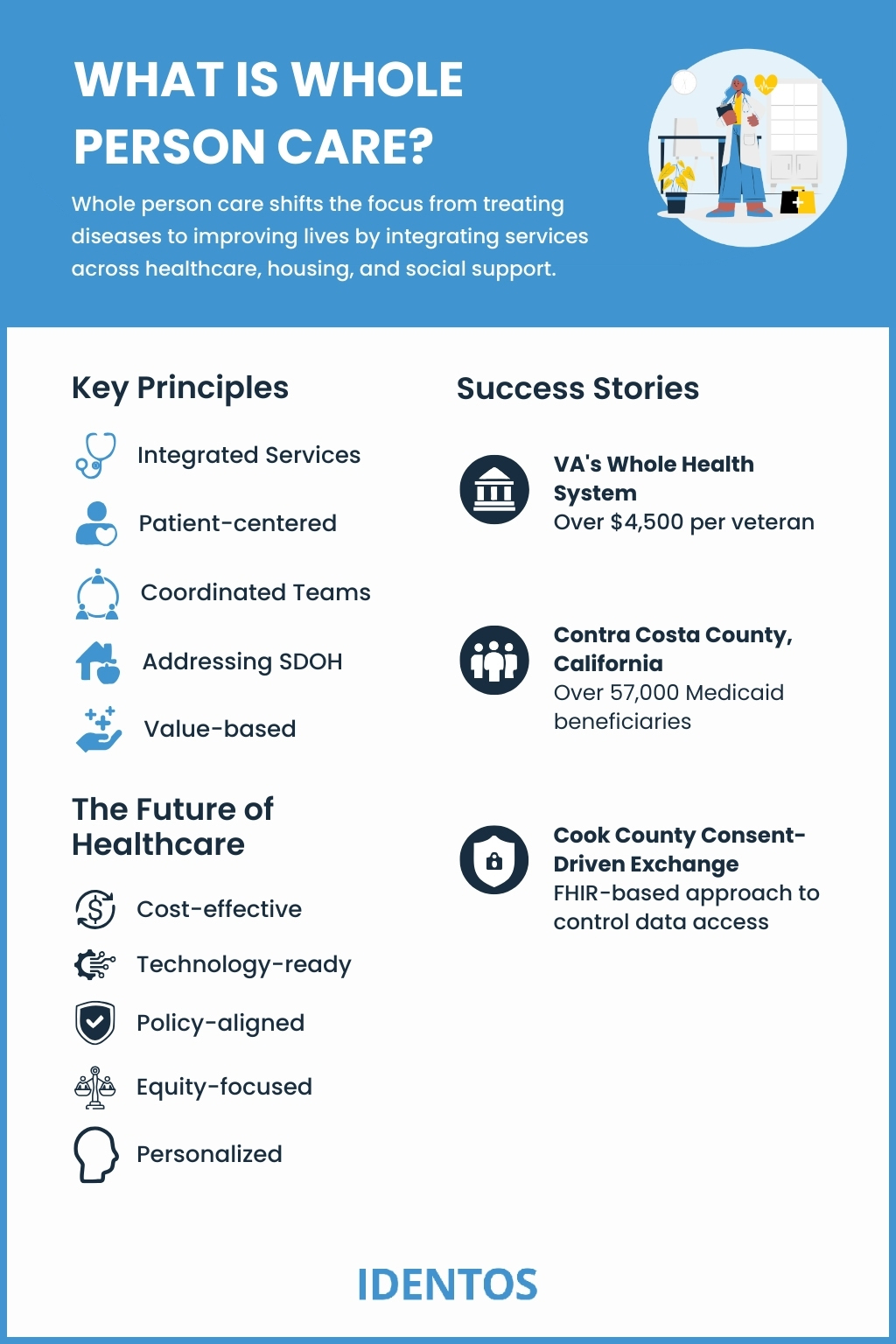
August 20, 2025
Whole person Care (WPC) is a patient-centered approach that addresses not just physical health, but also mental, social, emotional, and even spiritual well-being. By integrating services across healthcare, housing, and social support, WPC aims to treat the whole person, not just the symptoms.
Traditional healthcare systems often treat conditions in isolation. But real people are more complex, facing chronic illness, trauma, homelessness, or food insecurity alongside medical needs. Whole person care shifts the focus from treating diseases to improving lives.

🔹 The VA’s Whole Health System
The U.S. Department of Veterans Affairs developed a Two-Circle Model that reduced costs by over $4,500 per veteran annually, while improving health outcomes and satisfaction. Veterans co-created personalized care plans that aligned with their life goals.
🔹 Contra Costa County, California
Using predictive analytics and real-time data from systems like Epic EHR, Contra Costa coordinated care for over 57,000 Medicaid beneficiaries, resulting in fewer ER visits and improved housing stability.
🔹 Cook County’s Consent-Driven Exchange
In Chicago, a FHIR-based Consent Service Utility enabled data-sharing across healthcare and social services, empowering patients to control how their sensitive data was shared, especially in areas like substance use and mental health.
1. Cost-Effective: Reduces emergency visits and hospitalizations by addressing root causes.
2. Technology-Ready: Leveraging AI, real-time data, and FHIR standards makes integrated care possible
3. Policy-Aligned: Programs like California’s CalAIM and Canada’s AIDA are funding WPC infrastructure
4. Equity-Focused: Shifts care toward vulnerable populations with unmet needs
5. Personalized: Empowers people to take charge of their health journey
While the promise is big, WPC requires:
But as pilots prove, it can be done, and it works.
Q: What’s the difference between traditional healthcare and whole person care?
Traditional healthcare focuses on symptoms and diagnosis. Whole person care looks at everything affecting a person’s well-being, including social and emotional factors.
Q: Is whole person care only for vulnerable populations?
No. While it's especially impactful for high-need groups, everyone benefits from personalized, coordinated care.
Q: How does technology support WPC?
Tools like AI, consent-based data sharing, and EHR integration enable real-time coordination and better outcomes.
Healthcare is evolving, and whole person care is leading the way. By uniting physical health, mental wellness, and social support, WPC is proving that when you treat the whole person, everyone wins: patients, providers, and the system itself.
If you have any questions or require further information regarding this topic, please don’t hesitate to contact us using the form below.